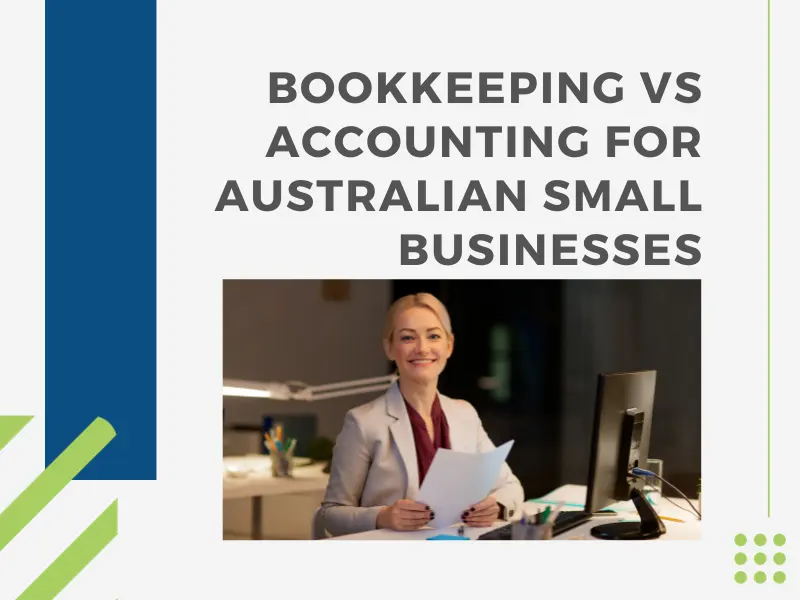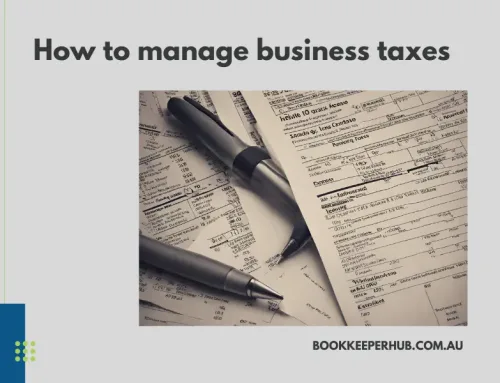In the realm of financial management for small businesses, the terms ‘bookkeeping’ and ‘accounting’ often surface. While interrelated, these two functions have distinctive roles and responsibilities. This article aims to elucidate the differences, aiding Australian small business owners in making informed decisions.
The Role of Bookkeeping
Bookkeeping revolves primarily around the systematic documentation of financial transactions. A bookkeeper, whether an in-house employee or an external service provider, keeps tabs on transactions, regularly updating your financial records. They manage ledgers, track incoming and outgoing payments, and organise data in a coherent manner. The core objective here is to maintain accurate, up-to-date transaction records.
The Scope of Accounting
Accounting goes beyond mere record-keeping to involve the scrutiny, assessment, and interpretation of a business’s financial situation. Using the records furnished by bookkeepers, accountants employ their specialised skills to draft reports and offer precise financial summaries. They also advise on financial strategies and handle tax-related matters, preparing tax returns and ensuring timely payments.
Common Grounds and Divergences
To the uninitiated, bookkeeping and accounting may appear almost interchangeable. Though both functions deal with monetary matters, distinctions exist. Occasionally, the boundaries may blur, especially in small businesses where a bookkeeper might undertake more analytical tasks or an accountant may engage in basic record-keeping.
What sets accountants apart is their advanced training and qualifications, allowing them to deliver a wider array of services compared to bookkeepers.
Key Contrasts between Bookkeeping and Accounting
While bookkeeping remains confined to data documentation, accounting is more expansive. Accountants not only possess bookkeeping skills but bring additional competencies like financial analysis and advisory services. They generate reports, make recommendations, and even provide consultation services, effectively adding value beyond straightforward data entry.
Hiring an accountant means you are seeking more than just well-organised financial records. They utilise the groundwork laid by bookkeepers to deliver a comprehensive set of services, ranging from tax planning to cost-cutting strategies.

Why Your Business Should Consider Both
Financial prudence is paramount for business success. A bookkeeper ensures that your records are meticulously maintained, paving the way for data-driven decision-making. Employing an accountant, on the other hand, can offer a strategic edge. They can alleviate tax-related stress and help optimise your finances, allowing you to focus on your business’s core activities.
Avoiding errors and dodging fines is crucial; having professionals take care of these aspects can prove invaluable.
Embracing Technology in Modern Bookkeeping
Technology has substantially altered the bookkeeping landscape. Today, businesses often utilise software like Xero to manage their financial records, offering real-time data access and operational cost reductions. The advent of smartphones and the internet has led to cloud-based solutions, giving business owners the flexibility to access their financial data at any point in time and from anywhere.
In Conclusion
While both bookkeeping and accounting deal with financial data, they serve different yet complementary roles. Bookkeeping lays the foundation by maintaining an accurate record of transactions, and accounting builds upon this to offer strategic insights and comprehensive financial management. For Australian small businesses, understanding the capabilities of each can be instrumental in steering the business towards growth and success.






